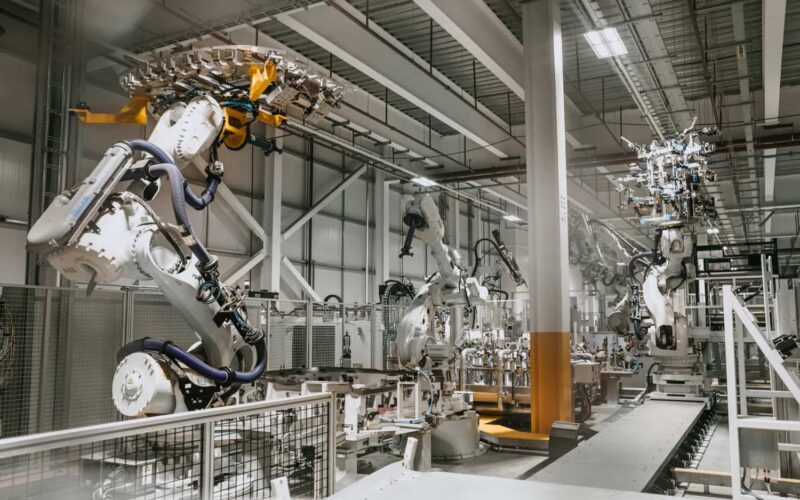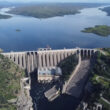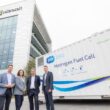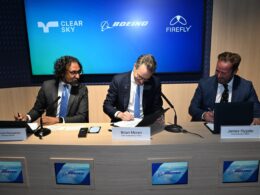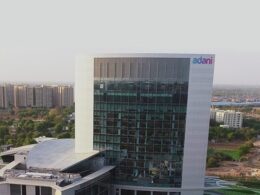Jaguar Land Rover (JLR) has announced a £500 million ($669 million) investment to revamp its historic Halewood facility, enabling the simultaneous production of electric vehicles (EVs) alongside existing combustion and hybrid models.
Originally established in 1963 to manufacture the Ford Anglia, the Halewood plant is now being transformed to embrace the electric age. With £250 million already spent, the site’s transformation has required over one million hours of construction in the past year, expanding the facility by 32,364 sqm to accommodate the production of JLR’s medium-sized electric luxury SUVs on the new Electric Modular Architecture (EMA) platform.
The historic plant has been equipped with cutting-edge technology, including new EV production lines, 750 autonomous robots, Advanced Driver Assistance System (ADAS) calibration rigs, laser alignment technology for precision fitment, and the latest cloud-based digital plant management systems to monitor production, transforming Halewood into the ‘factory of the future.’
This investment is part of JLR’s broader Reimagine strategy, which aims to electrify all of its brands by 2030 and achieve carbon net zero across its supply chain, products, and operations by 2039. The Halewood facility will play a key role in this strategy, producing internal combustion engine (ICE), plug-in hybrid (PHEV), and battery electric vehicle (BEV) models side by side, before eventually becoming JLR’s first all-electric production site.
“Halewood has been the heart and soul of JLR in the Northwest of England for well over two decades, producing vehicles such as the Range Rover Evoque and Discovery Sport. Halewood will be our first all‑electric production facility, and it is a testament to the brilliant efforts by our teams and suppliers who have worked together to equip the plant with the technology needed to deliver our world-class luxury electric vehicles,” said Barbara Bergmeier, Executive Director, Industrial Operations.
In pursuit of carbon neutrality by 2039, JLR is also focusing on renewable energy usage at Halewood, with plans to install 18,000 photovoltaic panels to generate 8,600 GWh of energy, equivalent to 10% of the plant’s energy consumption. Through a combination of renewable energy, fuel switching, and energy efficiency measures, the company aims to eliminate 40,000 tonnes of CO2 emissions from the site’s carbon footprint.
JLR is also heavily investing in its workforce through its Future Skills Programme, allocating £20 million annually across its sites to equip employees with the skills necessary for the future of automotive manufacturing. At Halewood, this includes the opening of a new training and development centre, where employees will be trained on vehicles at various stages of production, with a particular focus on High Voltage Training (HVT) for battery assembly. So far, 1,600 employees have completed HVT, with an additional 100 set to undergo training.
New automated technology at the plant allows for the precise fitment of vehicle doors using advanced laser measurement, ensuring high-quality finishes. As JLR looks to incorporate AI-powered autonomous driving and connected services in its next generation of vehicles, the Halewood facility now includes new ADAS calibration rigs to ensure each vehicle leaves the plant with the highest levels of safety calibration for future autonomous driving.
Having completed the first test builds of EMA body shells, JLR will continue refining its new machinery and technology ahead of full-scale EMA production.















